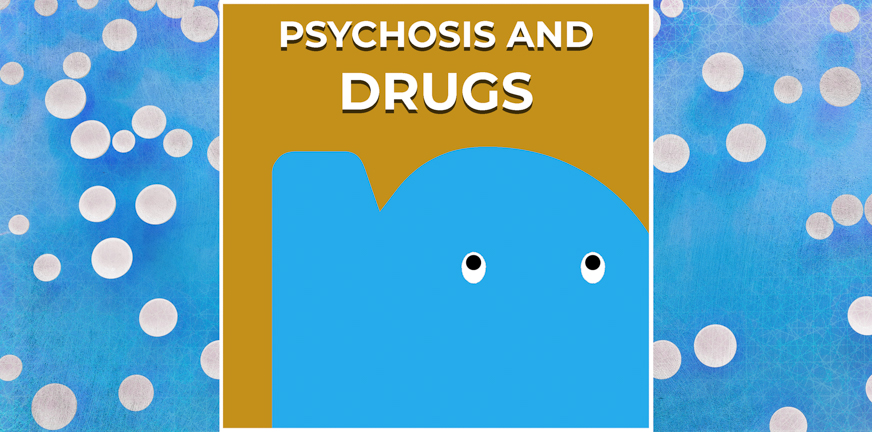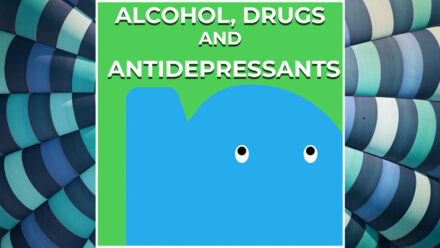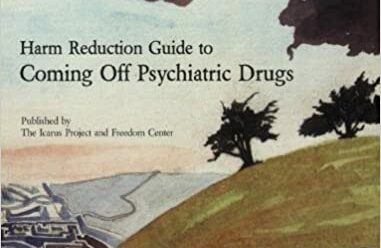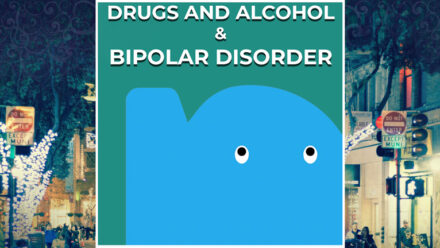
People often think that the use of drugs can cause psychosis. But it is not as simple as that. It is true that people who are already at risk, have a higher chance of psychosis when using some types of drugs, such as cannabis.
A mix of vulnerability and drug use
A boy who is smoking weed for the first time and becomes psychotic, already had a predisposition before lighting up. So cannabis can set off a psychosis if the likelihood was there already. In that case, drug use is the trigger that sets off the psychosis. The following factors all play a part and – combined with drug use – can increase the probability of a drug-induced psychosis:
- A history of mental illness in the family;
- If you reacted very strongly on smoking weed before;
- Smoking weed from a very young age onward.
Probability of psychosis because of drugs
How do you know whether you are at risk of becoming psychotic? Often you only discover this at the moment you notice your first signs of psychosis. If it then becomes clear you are vulnerable to psychosis, you would do well to stop taking drugs. If you really have to smoke weed, stick to mild cannabis with low THC levels, not the strong ‘ Haze’ types.
What drugs do to your brain
Increased levels of dopamine in the brain may play a role in psychosis, although this remains a hypothesis, not a scientific fact. Cannabis may affect dopamine: it may increase its breakdown in the front regions of the brain, while increasing dopamine levels in the deeper regions of the brain. This effect may lead to a higher risk of psychosis. When you take a lot of drugs, you could end up in a temporary drug-induced psychosis: a-so called toxic psychosis. It might be just a one-time episode, but it could also be the start of a life-long vulnerability.
Quitting weed to reduce the risk of psychosis
There is one rule for all mind-altering substances: it is best not to stop cold-turkey. Although using cannabis increases the risk of psychosis, suddenly quitting cannabis can also lead to mental problems. If you have stopped smoking weed before, you can look back to see whether any psychotic symptoms occurred right after quitting. If not, the risk of psychosis because of quitting cannabis appears small.
Higher risk when smoking weed at a young age
Growing evidence says there is a connection between using cannabis at a young age and the development of psychosis when you’re older. This is probably because a teenage brain is still in full development. Scientists believe that THC (one of the main effective chemicals in cannabis) affects how some parts of the brain function. The front part is responsible for complex mental functions. If drug use leads to permanent changes to that brain region, the consequences are irreversible.
Alcohol-induced psychosis and other substances
Cannabis is not the only substance that can trigger psychosis among vulnerable people:
- Cocaine stimulates the brain in a way that makes you hyper-alert and easily startled and perhaps even delusional;
- MDMA (ecstasy, molly, or “E”) can trigger panic and persecutory delusions;
- MDMA can increase the symptoms for people who easily become depressed or psychotic;
- Long-term use of amphetamines such as MDMA can lead to hallucinations and paranoia.
- LSD is a well-known ‘psychedelic drug’ and its effects can resemble psychosis. It can also cause fear, hallucinations and severe confusion;
- Alcohol can also trigger psychosis if you are vulnerable.
Summary
Alcohol or drugs alone are never the single cause of becoming psychotic. There are always other factors that contribute to it. However, the combination of psychosis vulnerability and one or more triggers, such as alcohol or drug use, can definitely increase the risk of psychosis.




